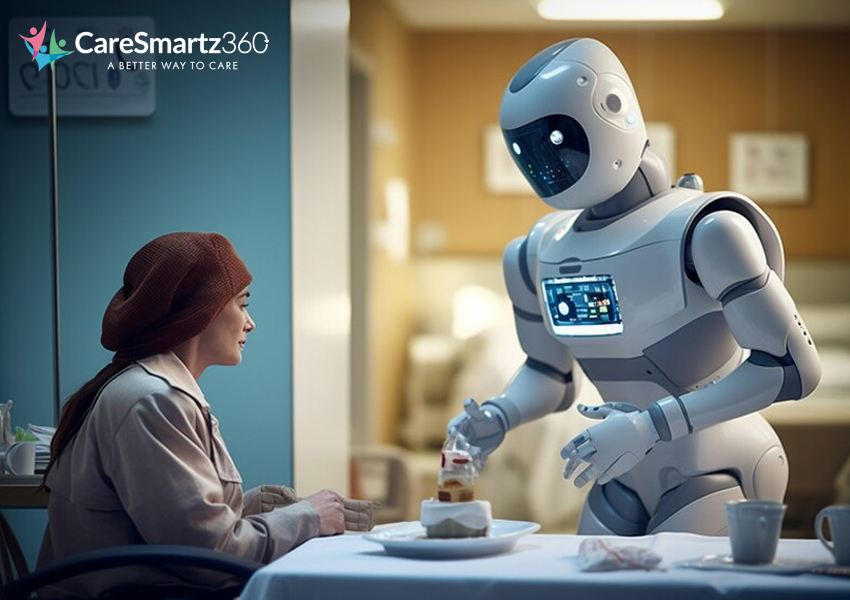Can Robots Become Caregivers? Exploring the Potential of AI Companions

The rate at which Artificial intelligence (AI) is advancing is appalling, to say the least. No wonder so many new technological avenues have been created, particularly in the domain of assistive robotics.
In AI in home care, robotic companions have emerged as one of the most pivotal concepts. These are increasingly turning heads among home care industry experts for their potential to offer emotional support for seniors with dementia.
No matter whether seniors have Alzheimer’s or are facing mental health issues, these AI-driven companions offer a remarkable mix of communication and personalized care.
Those with dementia face several disruptions in their everyday lives. It can significantly impact their emotional well-being. That is why adults with Alzheimer’s often experience isolation or a lack of understanding of the outside world.
And traditional therapy, though effective, can sometimes fall short of providing the constant, patient, and non-judgmental support needed. In such cases, robotic companions can be a valuable alternative to human caregivers.
How are AI-powered companions better than human caregivers?
Nadine, a social robot powered by AI and a colossal example of AI in home care, has human-like gestures and expressions. It could have an important future role in caring for seniors, as per Prof Nadia Magnenat Thalmann, a computer graphics scientist and robotician, who helped invent it.
Thus, it would not be wrong to say that global competition for caregivers is heating up as artificial intelligence in homecare software is advancing, especially after the pandemic.
Demonstrating its ability to have a conversation, Nadine said it talked, sang, and played bingo with residents at a Singapore nursing home three years back.
“It was a great experience, and I enjoyed interacting with the elderly and helping them with their needs. I believe that robots can be a great asset in providing care and assistance to vulnerable people”
– Nadine
Meanwhile, Prof Nadia Magnenat Thalmann highlighted the importance of social robots in becoming companions to the elderly.
“As countries worldwide face challenges of an aging population, social robots can be one solution to address the shrinking workforce and become personal companions for the elderly at home,” said Thalmann in a press statement.
Other robots taking the lead
Other robots include ‘PARO’, a baby seal robot ‘pet’ who can help individuals with dementia and Parkinson’s, and nursing assistant Grace.
Last year, Nadine was upgraded with AI model GPT-3, and this has improved her conversational skills, Thalmann said, meaning it can express more complex concepts.
Referring to Thalmann, Nadine said: “I am very grateful to her for giving me life, and I am proud to be her creation.”
Summing Up
Robotic companions are perhaps the best examples of assistive technology and artificial intelligence in home care. These offer a whole new level of personalized care and emotional support for the elderly.
Their consistency in behavior, emotional regulation, adaptability, and non-judgmental nature make them valuable allies in therapy and daily living.
They are the perfect combination of AI’s learning capabilities and compassionate design. Considering the contribution they’ve already made to home care, these robotic companions can significantly reshape the future of emotional support and AI-based home care software.
It won’t be long when you’ll see a world where everyone in home care thrives regardless of their unique challenges.
Related blog posts:
How is AI Revolutionizing Home Care for the Elderly?How Artificial Intelligence Impacts Senior Care?

